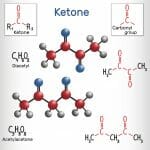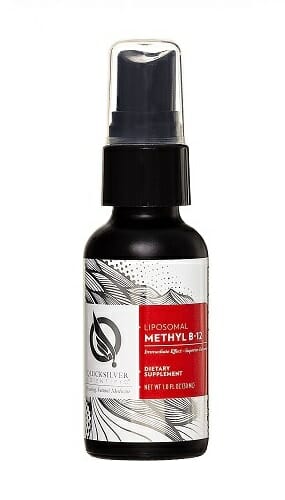Can You Take Supplements During Intermittent Fasting?

At the end of the day, supplements aren’t much different than the foods they are often derived from. This means that certain supplements, particularly those which contain calories, are liable to disturb your body’s delicate fasting process. It may seem crazy that something as small as a multivitamin capsule is capable of such a disruption, but that’s just the way our bodies are wired!
However, does that mean people who engage in intermittent fasting should avoid taking supplements altogether? Of course not. If you want to try out this exciting new diet, but fear it may interfere with your current supplemental regimen, or vice versa, then fear not!
This blog is here to provide you some guidance on the best supplements to take alongside an intermittent fasting diet, as well as some tips on the best way to time your supplemental regimen to avoid fasting disturbances.
Table of Contents
Intermittent Fasting in a Nutshell

Fasting is an ancient practice which has a pivotal role in numerous religions including, but not limited to Buddhism, Islam, Judaisms, and Christianity.
Doesn’t it seem a bit absurd that a human tradition as ancient as fasting has become a fad in the modern day? While ancient people’s reasoning for fasting (religious ceremonies, rationing of food, etc) might differ greatly from our own (developing a “hot summer bod”), the practice itself is undeniable useful. (1)
So, how do people fast in the modern day? What are the exact procedures of an Intermittent Fasting (IF) diet?
The best way to unpack these questions is to review the most common fasting approach: The 16/8 Method.
“16/8” refers to a daily fasting regiment wherein 16 hours of the day are spent fasting, while the other 8 hours are known as an “eating window”. You can orient these windows of time however you want, depending on your daily schedule, but the most common approach is to place your eating window between the hours of noon and 8pm. This means that most of the “fasting window” is spent asleep. Meanwhile the noon to 8pm eating window allows for regularly scheduled lunches and dinners.
While 16 hours of fasting per day might sound intimidating at first, the schedule we just walked through essentially equates to skipping breakfast. I know there are some real breakfast lovers out there, but even they have to admit that isn’t the worst sacrifice you could make for your health. Many diets require far greater sacrifices after all!
Benefits of Intermittent Fasting
Now that we’ve walked through a very basic fasting procedure, some of you must be wondering about the scientific underpinnings of this fad diet. Why would 16 hours of no food be considered such a healthy thing?
Lets cover the weight loss first. That’s obviously a primary reason for engaging in any diet! While body weight is not the be-all-end-all of human health, it does have a tremendous effect on multiple bodily systems and functions. So, what is the scientific evidence for the effects of intermittent fasting on weight loss?
It does seem like a bit of a no-brainer that eating less will lead to weight loss, but it actually gets much more complicated than that. It’s all to do with what your body burns as its fuel source. When our bodies are full of simple carbs and sugars, those are used as its primary source of energy. This is fine enough for keeping most of us active in our day-to-day lives, but it can result in the accumulation of large stores of body fat.

The weight loss benefits of intermittent fasting are relatively intuitive, but people often overlook how these changes might affect other bodily systems. One very important system where these effects have been carefully documented is the cardiovascular system.
Intermittent Fasting and the Cardiovascular System

Aside from benefits directly tied to weight loss, a 2019 scientific review on the topic concludes that the IF diet may positively impact other important aspect of cardiovascular health such as concentrations of total cholesterol, triglycerides, and LDL cholesterol. The review indicates that this is due to its effect on the biochemical transformation of lipids.
In addition, the IF diet may be capable of reducing inflammatory markers like IL-6, homocysteine, and CRP, thus inhibiting the development of atherosclerotic plaque. (4)
The Best Supplements to Take on the Intermittent Fasting Diet
Before we get too wrapped up in all the benefits of the IF diet, it’s important to acknowledge that there are certain noteworthy risks and downsides. Other than people who are already underweight, pregnant women and those with hormonal imbalances are considered the most at-risk.
While anyone with hormonal issues should be very cautious before engaging in the IF diet, there are certain supplements which, alongside the guidance of a healthcare professional, may be able to help keep things in balance. For this cause, supplements like Metagenics Licorice Plus and Ortho Molecular Products DHEA Tablets may be useful.

Looking for a 0 calorie, fast-acting energy boost? Quicksilver Scientific Liposomal B12 may be the supplement for you.
Another issue of intermittent fasting which can be addressed by supplements is energy. This one is especially useful for all you breakfast lovers/needers out there! If you can’t imagine powering through to lunchtime without a hearty breakfast, then certain supplements may be able to give you the boost you need without any calories. Our top recommendation for this cause is Quicksilver Scientific Liposomal B12.
Finally, for some people skipping meals may result in a minor deficiency in certain crucial nutrients. If you’re concerned with the quality and nutrient diversity of foods that you’re able to consume during your eating window, then you may want to reach for a multivitamin which can account for any absent nutrients. A great choice for this would be IntraMax 2.0, primarily due to its high concentrations of trace dietary minerals which can easily be lacking in a poorly balanced diet.
However, it’s important to note that IntraMax contains calories and should only be consumed during your eating windows. Remember, calories, even in the smallest quantity, are a big no-no during your fasting window.
Conclusion
Intermittent fasting is one of the most exciting diets to arise in the past decade. This is due primarily to its convenience and accessibility. All of the positive attention and validation that IF has received from scientific researchers is only just the icing on the cake! And yes, you can eat that cake during your eating window 😉
If you’ve gotten sick and tired of expensive fad diets which don’t deliver any significant weight loss progress, then say goodbye to your breakfast and give intermittent fasting a try! Just remember to be safe and pay close attention to the signals of your body, especially if attempting a fast period of 24 hours or longer.
Thank you for taking the time to read Can You Take Supplements During Intermittent Fasting?
Please note: All information presented to you in this website is intended for your general knowledge only and is not a substitute for medical advice or treatment for specific medical conditions. We cannot, and will not give you medical advice. We strongly recommend you consult your physician for any and all specific health issues. If you have any questions or contributions, please contact us via email or phone-call. We are constantly looking for new information to promote wellness – and hearing from you would make our day.
Live Vibrantly!
References
- Fasting: Molecular Mechanisms and Clinical Applications
- Effects of eight weeks of time-restricted feeding (16/8) on basal metabolism, maximal strength, body composition, inflammation, and cardiovascular risk factors in resistance-trained males
- Obesity paradox in cardiovascular disease: where do we stand?
- Intermittent Fasting in Cardiovascular Disorders—An Overview

